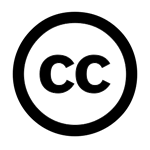Carly Finseth is a PhD student in Technical Communication & Rhetoric at Texas Tech University. She has taught first-year composition at both Clemson University and at Texas Tech University, and is currently investigating how to teach an introductory technical communication course as a game. In 2011 she won Clemson University's Thomas E. Douglass Teaching Award for Excellence in Teaching. Her research interests include teaching writing, online education, gaming studies, knowledge creation through play, usability, and open source technologies and culture.
References
Freire, P. (2000). Pedagogy of the Oppressed: 30th Anniversary Edition. New York: Bloomsbury.
Gee, James Paul. (2007). What Video Games Have to Teach Us About Learning and Literacy. New York: Palgrave Macmillan.
GIMP. (n.d.). “GIMP – Getting Involved.” Retrieved from http://www.gimp.org/develop/.
GIMP. (n.d.).“GIMP – Frequently Asked Questions.” Retrieved from http://www.gimp.org/docs/userfaq.html.
Gladwell, Malcolm. (2011). Outliers: The Story of Success. New York: Little, Brown and Company.
Himanen, Pekka. (2002). The Hacker Ethic: A Radical Approach to the Philosophy of Business. New York: Random House.
Johnson, Steven Berlin. (2005). Everything Bad is Good for You: How Popular Culture is Actually Making Us Smarter. New York: Riverhead Books.
Lowe, Charles. (2010). "Considerations for Creative Commons Licensing of Open Educational Resources: The Value of Copyleft." Computers and Composition Online (September 2010). Retrieved from: http://www.bgsu.edu/cconline/open/which-license.html.
Moulthrop, Stuart. (2005). “After the Last Generation: Rethinking Scholarship in the Days of Serious Play.” Paper presented at the Sixth Digital Arts & Culture Conference, Information Technology University of Copenhagen.
Mozilla. (n.d.). "Mission." Retrieved from http://www.mozilla.org/en-US/mission/.
Raymond, Eric S. (1999). The Cathedral & the Bazaar: Musings on Linux and Open Source by an Accidental Revolutionary. Sebastopol: O’Reilly Media.
Serious Games Initiative. (2012). “The Serious Games Initiative.” Retrieved from http://www.seriousgames.org.
Shirky, Clay. (2012). Clay Shirky’s Writings About the Internet: Economics and Culture, Media and Community, Open Source. “The Interest Horizons and the Limits of Software Love.” Retrieved from http://www.shirky.com/writings/interest.html.
SourceForge. (2013). "About." Retrieved from http://sourceforge.net/about.
Stallman, Richard. (2009). Why "Open Source" Misses the Point About Free Software. Communications of the ACM 52(6), 31-33.
TED: Ideas Worth Spreading. (2012). “Jane McGonigal: Gaming Can Make a Better World.” Retrieved from http://www.ted.com/talks/jane_mcgonigal_gaming_can_make_a_better_world.html.
Torvalds, Linus. (1999). Just for Fun: The Story of an Accidental Revolutionary. New York: HarperBusiness.
Weber, Steven. (2004). The Success of Open Source. Cambridge: Harvard University Press.
Wells, Gordon. (1999). Dialogic Inquiry: Towards a Sociocultural Practice and Theory of Education. Cambridge: Cambridge University Press.
